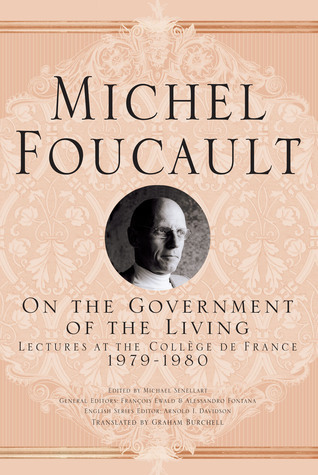
Part of Series
The thirteenth and final English volume of Michel Foucault’s Lectures at the Coll ège de France “What characterizes the act of justice is not resort to a court and to judges; it is not the intervention of magistrates (even if they had to be simple mediators or arbitrators). What characterizes the juridical act, the process or the procedure in the broad sense, is the regulated development of a dispute. And the intervention of judges, their opinion or decision, is only an episode in this development. What defines the juridical order is the way in which one confronts one another, the way in which one struggles. The rule and the struggle, the rule in the struggle, this is the juridical.” —Michel Foucault The great French philosopher Michel Foucault delivered a series of lectures at the Collège de France from November 1971 to March 1972, entitled Penal Theories and Institutions. Within them, he presented for the first time his approach to the question of power, one that would become the focus of his research up to the writing of Discipline and Punish and beyond. His analysis begins with a detailed account of Richelieu’s repression of the Nu-pieds Revolt (1639–1640) and moves on to show how the apparatus of power developed by the monarchy on this occasion broke with the system of juridical and judicial institutions of the Middle Ages, widening into a “judicial State apparatus”—a “repressive system,” whose function was focused on the confinement of those who challenged its order. Here, Foucault systematizes his approach to a history of truth which is at the heart of his notion of “knowledge-power,” based on the study of “juridico-political matrices” that he had begun in the previous year’s Lectures on the Will to Know. Available for the first time in English, these lectures are an essential milestone in the development of Foucault’s influential theory of justice and penal law.
Author

Michel Foucault was a French philosopher, social theorist and historian of ideas. He held a chair at the Collège de France with the title "History of Systems of Thought," but before he was Professor at University of Tunis, Tunisia, and then Professor at University Paris VIII. He lectured at several different Universities over the world as at the University at Buffalo, the University of California, Berkeley and University of São Paulo, University of Rio de Janeiro, Brazil. Foucault is best known for his critical studies of social institutions, most notably psychiatry, medicine, the human sciences and the prison system, as well as for his work on the history of human sexuality. His writings on power, knowledge, and discourse have been widely influential in academic circles. In the 1960s Foucault was associated with structuralism, a movement from which he distanced himself. Foucault also rejected the poststructuralist and postmodernist labels later attributed to him, preferring to classify his thought as a critical history of modernity rooted in Immanuel Kant. Foucault's project was particularly influenced by Nietzsche, his "genealogy of knowledge" being a direct allusion to Nietzsche's "genealogy of morality". In a late interview he definitively stated: "I am a Nietzschean." Foucault was listed as the most cited scholar in the humanities in 2007 by the ISI Web of Science.

